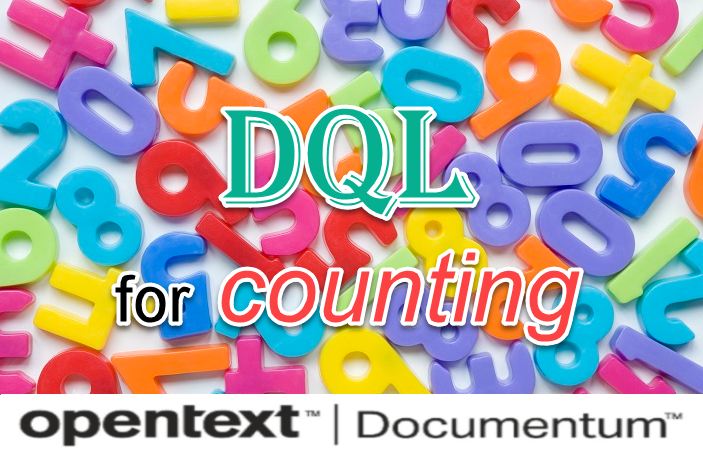
Category: DQL
Tracing the Evolution: The History of Documentum
In the landscape of enterprise content management (ECM), Documentum has etched its name as a pioneering and enduring platform. Its journey from a novel idea to a cornerstone of digital document management reflects the evolution of technology, business needs, and the digital workplace. This blog delves into the history of Documentum, exploring its origins, milestones,…
Documentum vs. SharePoint: Why Documentum Holds the Upper Hand
In the digital era, where information is both a tool and a currency, the platforms we choose to manage this wealth of data can determine an organization’s efficiency, compliance, and overall success. Among the myriad of enterprise content management (ECM) systems available, Documentum and SharePoint emerge as two of the leading solutions. However, when delving…
Exploring Documentum: A Comprehensive Guide
In the vast expanse of digital content management solutions, Documentum stands as a colossus, offering robust capabilities for managing, storing, and retrieving a wide array of document types across various industries. This blog aims to demystify Documentum, exploring its core features, benefits, and practical applications that underscore its importance in today’s digital-first world. What is…
Orphan content cleanup
The following script cleans up the orphan content. dmfilescan -docbase_name <docbasename> -init_file D:\Documentum\dba\config\<docbasename>\server.ini -s filestorex_10 -scan_now FALSE -force_delete TRUE > D:\Temp\filescan_script_10202023.bat
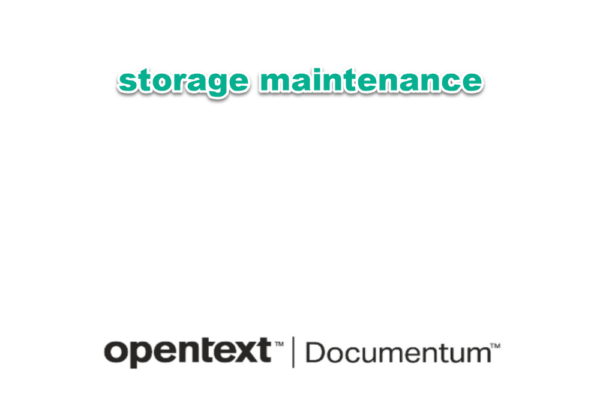
Storage Update
If your storage is full, and you add a new drive/Storage, and need to route all new content to the new one. Here are some useful steps, you really need. Create the dql select ‘alter type ‘ + ti.r_type_name + ‘ SET DEFAULT STORAGE ”filestorex_11” ‘ from dm_store st, dmi_type_info ti where st.r_object_id=ti.default_storage and st.name…
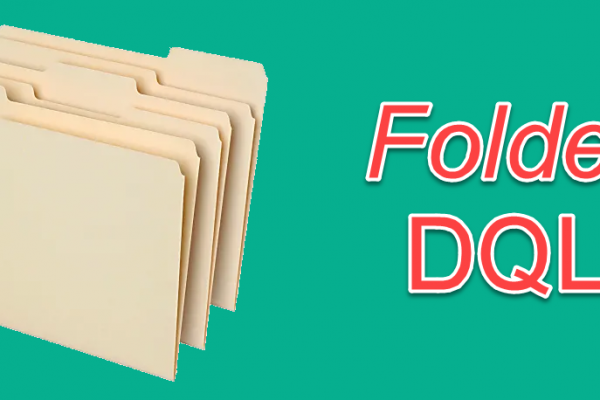
Folder related queries
Unlink folders:update dm_folder object unlink ‘/Cabinet/Folder1/Folder2/…./Parent Folder’ where r_object_id = ‘0bxxxxxxxxxxxxxx’ List folder path and all documents in given path select distinct dm.r_object_id, dm.object_name, dm.a_category, dm.r_creation_date, dm.r_modify_date, dm.r_object_type, f.r_folder_path from dm_document dm, dm_folder f where FOLDER(ID(‘0b01bd6f805353a4’), DESCEND) AND dm.r_object_type in(‘w_doc’,’w_media’) AND f.r_folder_path like ‘%/My Location%’ AND dm.i_folder_id = f.r_object_id ORDER by f.r_folder_path ENABLE (ROW_BASED) Content…
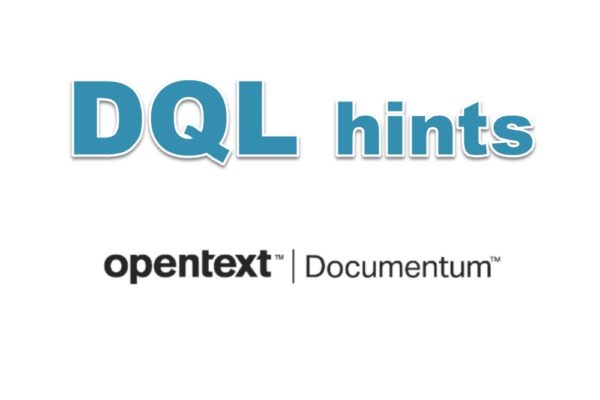
DQL hints
1. RETURN_TOP N This hint limits the number of rows that a query returns. If you are not interested in seeing all the rows but only the top five (for example), use this code: SELECT user_name FROM dm_user ENABLE (RETURN_TOP 5) 2. OPTIMIZE_TOP N This hint directs the database server to return the first n…

Deleted content
queries related to deleted content. Find Deleted Content Find all the deleted content in the repository. This works well as long as the dm_Clean job has not run. A technique for undeleting content will be the subject of a future post. select * from dmr_content where any parent_id is NULL and content_size > 0 order…
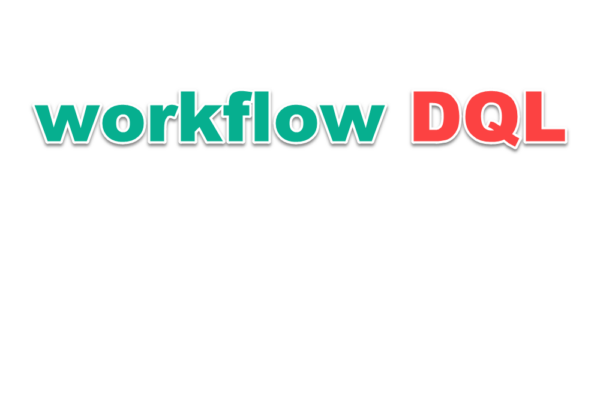
Workflow DQL
select distinct xxx_atrb1, due_date, xxxx, task_state, name from xxx_custom_folder, dmi_queue_item, dmi_package, dm_workflow, dm_process, dmi_workitem where due_date >= date(’03/01/2020′) and due_date <= date(’04/01/2020′) and dmi_queue_item.router_id=dmi_package.r_workflow_id and dm_workflow.r_object_id=dmi_queue_item.router_id and dm_workflow.r_object_id=dmi_workitem.r_workflow_id and dm_workflow.process_id=dm_process.r_object_id and task_name like ‘%Custom Task Name%’ and ANY dmi_package.r_component_id = cms_custom_folder.r_object_idorder by name; find by date & finished ones: select distinct cms_custom_id, cms_processing_type, cms_custom_date, cms_task_due_date, due_date, cms_pkg_custom_location, task_state, name from cms_custom_folder, dmi_queue_item, dmi_package, dm_workflow,…
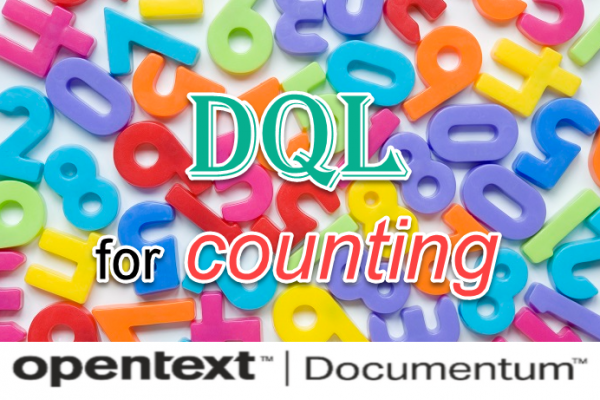
Counting DQL
queries to count Number of documents created:select datetostring(r_creation_date,’mm-dd-yyyy’) as creation_date, count(*) as document_count, r_object_type from dm_document where r_creation_date >=DATE(TODAY)-7 group by datetostring(r_creation_date,’mm-dd-yyyy’), r_object_type Number of folders created:select datetostring(r_creation_date,’mm-dd-yyyy’) as creation_date, count(*) as folder_count from dm_folder where r_creation_date >=DATE(TODAY)-7 group by datetostring(r_creation_date,’mm-dd-yyyy’) Number of workflows created:select datetostring(r_start_date,’mm-dd-yyyy’) as wf_start_date, count(*) as workflow_count from dm_workflow where r_start_date >=DATE(TODAY)-7 group…
